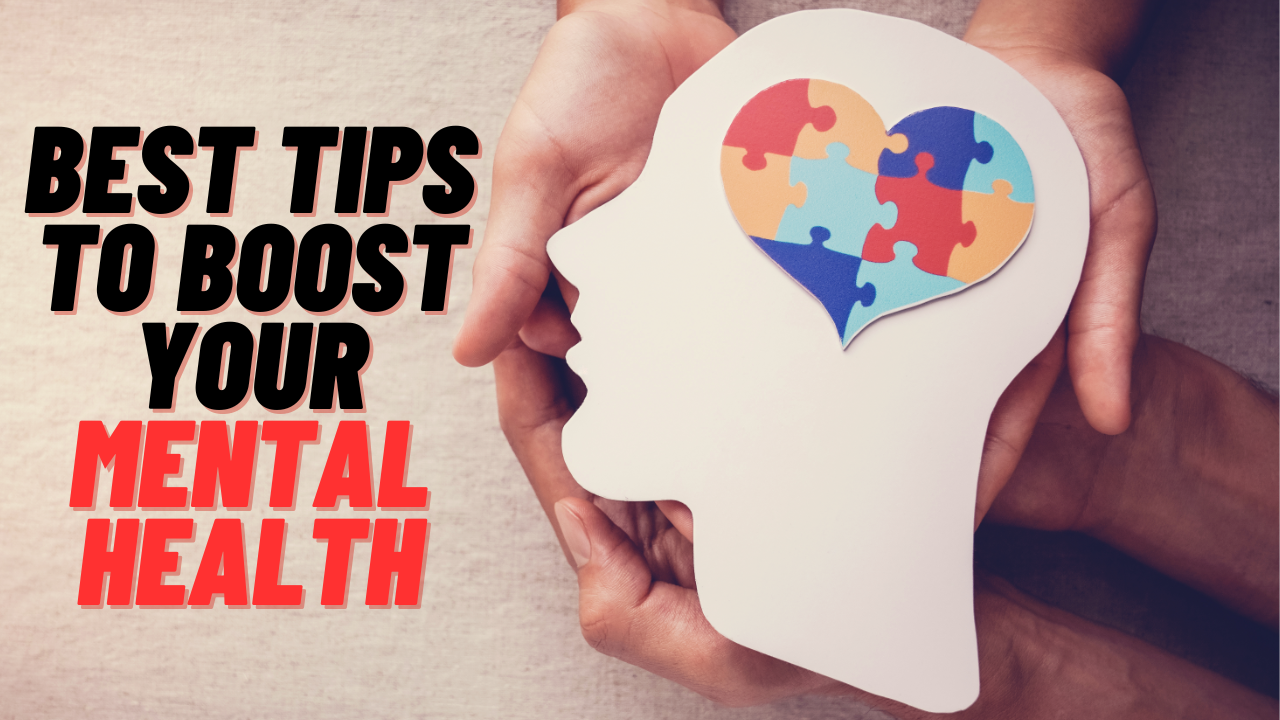Mental health is essential to a fulfilling and balanced life and a complex part of well-being. Going beyond the surface jargon and advice for mental health requires exploration. Let's go beyond clichés and explore unique ways to create mental riches, which are full of resiliency, clarity, and emotional harmony. Mental and physical health must be balanced for overall well-being. Talking to someone about your feelings or connecting with others can improve your mental health. Walking releases endorphins that boost mood and reduce stress while maintaining anatomical health. Integrating mental and physical health is essential to solving health issues. For sharing concerns and seeking advice, a supportive social network can be helpful. Another important factor is getting enough sleep, which can make you more resilient to life's challenges. Excellent mental and anatomical health work together to create a more balanced and fulfilling life.
Tips for Improving Your Mental Wellbeing Given Below:
Mindful Consumption: Nourishing Your Mental Diet for Good Mental Health
In the same way that the food we eat has a significant impact on our mental health, the information that we take in also affects our mental health. Taking a conscious approach to the consumption of information is something to think about. Create a digital environment that encourages growth and positivity by removing negative content, limiting your exposure to sensationalized news, and filtering out negative content. It is essential for one's entire well-being to consume food that is nutritious to the mind, just as a balanced diet is beneficial to one's physical health.
Embracing Imperfection: A Canvas of Self-Compassion for a Healthy Life
The act of embracing one's imperfections becomes a revolutionary act of self-love in a world that frequently extols the virtue of perfection. It is important to realize that being human means that you will inevitably make mistakes, encounter obstacles, and experience failures. To cultivate self-compassion, you should treat yourself with the same kindness that you would show to a friend when you are going through a difficult period. Rather than being a defect, imperfection is a stroke of the brush on the canvas of your individual path.
The Power of Micro-Moments for Improve Your Mental Wellbeing
Making time for extended periods of self care might feel like an insurmountable challenge when one is surrounded by the chaos of daily life. Instead, you should investigate the potential of micro-moments, which are very brief breaks that are taken on purpose and give your mind mini-retreats. The accumulation of these micro-moments, whether they consist of a few deep breaths, a moment of focused observation, or a brief trip outside, results in the formation of a reservoir of mental well-being.
Talk to Someone, Connect with Others: Digital Detox Strategies
Although our digital lives connect us to people all over the world, they also have the potential to cause mental exhaustion. You should schedule regular periods for digital detox, which will help your mind disconnect from technology and reacquaint itself with the real world. Engage in activities that do not require the use of a screen, rediscover the pleasure of having interactions with other people, and create environments in which screens do not define your experience. By reducing the noise that might clog your mental landscape, a mindful digital detox can help you achieve mental clarity and improve your productivity.
Movement as Medicine: Physical Exercise for Mental Wealth
A strong elixir for mental health, physical exercise is not only about molding the body; it is also about improving mental health. Activities that bring joy and movement, such as dancing, hiking, or practicing yoga, should be engaged in since they are beneficial. Endorphins are released, stress hormones are reduced, and a happy mood is contributed to as a result of the mind-body connection that is maintained through physical activity. self care can be manifested in the form of physical activity, which nourishes both the body and the mind.
The Art of Saying 'No': Boundaries as Self-Care
One of the arts that contributes to mental well-being is the practice of establishing and respecting personal limits. When you feel that your mental and emotional space is being invaded by commitments or requests, you should learn to say "no" without feeling guilty. Establishing limits is a form of self care that helps you maintain your energy levels and prevents you from experiencing burnout. Making a conscious decision to put your mental health first and to work toward achieving a sustainable balance in your life is a mindful choice.
Cultivating a Growth Mindset: Learn New Skills
The term "growth mindset" refers to a conceptual framework that sees problems as chances for educational and personal development. Acknowledge and accept failures as opportunities for growth, and tackle challenges with an attitude of inquiry and resiliency. Reframing your perspective and acknowledging that setbacks are an inevitable part of the journey gives you the ability to negotiate the twists and turns that life throws at you with a mindset that is centered on making progress and adapting to new circumstances.
Creative Expression Manage Your Feelings: The Soul's Language
Participate in creative pursuits that will enable you to convey the world that lies within you. Exploring your creative side may be a therapeutic activity, regardless of whether you do so through the medium of art, literature, music, or any other sort of creative pursuit. The act of expressing oneself creatively can serve as a positive outlet for feelings, a path to self-discovery, and a source of happiness. It is a language that is not limited by the boundaries of the mind, and it offers a canvas for the expression of feelings and for seeking internal reflection.
FAQ's
How can I improve my mental health?
The best mental health recommendations cover many facets of well-being. Regular exercise, mindfulness, social relationships, self-care, and skill acquisition are beneficial ways. These holistic activities improve mental and emotional wellbeing.
How does regular exercise improve mental health?
Research shows that regular exercise releases endorphins, which boost mood. It reduces stress, anxiety, and depression, improving mental health. Exercise may be sustainable and fun by adding things you enjoy, like walking, jogging, or yoga.
Why is social interaction vital for mental health?
Social connections improve mental health by offering emotional support, minimizing isolation, and encouraging belonging. Strong social support comes from spending time with friends and family, having meaningful conversations, and participating in group activities.
How does mindfulness improve mental health?
Focusing on the present without judgment is mindfulness. This technique reduces stress, improves self-awareness, and boosts mental health. Meditation, deep breathing, and being present in daily life improve mindfulness.
How can self-care promote mental health?
Mental health recovery requires focusing on joy, relaxation, and fulfillment in self-care. A balanced self-care routine includes enough sleep, good nutrition, limits, and energy-boosting activities. Consistent self-care builds well-being.
Conclusion
Managing your mental health is a dynamic, personal journey of deliberate choices and practices. In addition to the usual advice, mental wealth involves exploring mindful consumption frontiers, accepting imperfection, and prioritizing self-compassion. If you use these unique methods daily, you can create a lasting, clear, and harmonious mental landscape. This will help you create a well-being sanctuary that reflects your vibrant inner world.
Improving mental health and well-being is crucial, especially if you have mental health issues. The NHS, Canadian Mental Health Association, and research studies provide mental health tips. First, learning new skills stimulates the mind and improves mood and emotional health. Regular exercise, enjoying hobbies, and mindfulness can improve mental and physical health. Self-care, sleep, and managing difficult emotions are essential to mental health. Kindness, even a walk in nature, can reduce stress and anger and improve well-being. Understanding that mental health is unique to each person and seeking help from a mental health professional or trusted friend is important. These tips can help you manage emotions and live a healthy life by scheduling fun activities, practicing breathing exercises, and limiting alcohol and caffeine. Maintaining mental health is a journey, and even small changes can make a difference. You or someone you know can get help 24/7.





